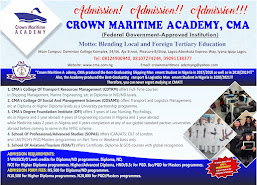Nigeria Secures Continental Backing for Customs Reform as C-PACT Summit Ends in Abuja
Kathy Kyari
Nigeria’s bid to drive continent-wide Customs harmonisation gained firm momentum on Wednesday as the Nigeria Customs Service (NCS) ended the C-PACT Summit in Abuja, with African Customs chiefs and trade actors committing to align border procedures, modernise systems and remove the non-tariff barriers slowing AfCFTA’s implementation.
The three-day Summit held at the Congress Hall of the Transcorp Hilton brought together senior Customs officials, trade policymakers and economic operators from across the continent for technical sessions and high-level discussions coordinated by the Comptroller-General of Customs, Adewale Adeniyi.
CGC Adeniyi said the forum had provided Africa with “a credible platform to move from fragmented efforts to collective solutions,” noting that the resolutions reached would guide Customs administrations in strengthening procedures, improving compliance frameworks and eliminating the non-tariff barriers that continue to impede cross-border trade.
He added that the C-PACT initiative proposed and championed by Nigeria, would now serve as “a working mechanism for African Customs administrations to engage regularly, share operational experiences and harmonise processes in support of AfCFTA.”
Earlier in the summit, Vice President Kashim Shettima, representing President Bola Tinubu, urged African nations to break down structural trade obstacles and embrace a continent-wide framework that drives competitiveness, industrial growth and predictable cross-border commerce.
World Customs Organisation Secretary-General, Ian Saunders, also underscored the centrality of Customs to AfCFTA’s success, reminding participants that Customs authorities “connect borders, enforce standards and determine the practical realities of trade.”
Afreximbank Executive Vice President, Kanayo Awani, stressed similarly that without modern and interoperable systems, AfCFTA’s benefits would remain out of reach.
Delegates expressed satisfaction with robust discussions on rules of origin, transit regimes, risk management, digital documentation, gender inclusion and coordinated border management, agreeing that the C-PACT platform should continue as a technical body for tracking progress and aligning national systems with emerging continental standards.
Private-sector participants including freight operators, logistics firms, manufacturers, port administrators and exporters highlighted delays, inconsistent procedures and documentation bottlenecks that still frustrate intra-African trade.
National President of the Association of Licensed Customs Agents, Emenike Kingsley, commended the engagement, saying it provided “the first opportunity in years for Customs managers and economic operators to jointly examine operational constraints.”
With the commitments secured in Abuja, stakeholders say Nigeria has effectively positioned C-PACT as the backbone of efforts to harmonise Customs operations and unlock the trade potential envisioned under AfCFTA.



















0 Comments